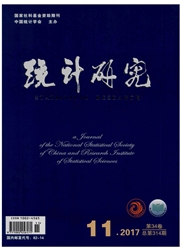

 中文摘要:
中文摘要:
本文围绕着农户家庭收入增长和劳动就业决策行为的动态关系而展开,笔者在设定一个基本理论框架的基础上提出了两个基本假说,进而引出了经验分析。本项研究利用2001~2006年湖北15个村庄的900户农户跟踪调查的面板数据,研究发现:(1)农户家庭是一个理性的微观经济组织。(2)处于外生政策变动中的农户经济组织是一个完整的经济系统,它在外部经济条件的冲击下表现出比较稳定的“状态依赖”特征。当前中国农村形成了“农村就业两端刚性”的趋势。(3)从短期来看,外部支农政策冲击并没有从本质上改变农户家庭的就业决策行为。(4)中国农村家庭就业行为决策是本质上的理性和表现上的非理性的统一。
 英文摘要:
英文摘要:
With its focus on the income growth and employment decision act of the peasant household, this paper has set a theoretical framework, and has raised two fundamental hypotheses. This study has gained several findings using panel data of 900 peasant households in Hubei from 2001 to 2006, the empirical study are as followed: (1) peasant household is a rational micro economic organization; (2) under the condition of changing exogenous policy, the peasant households is a complete economic system, which appears to be characterized stably "state dependence". Currently, peasant households have commonly formed the trendof "two stream non-elasticity on labor employment"; (3) in the short run, some policies prior to the development of agricultural, rural and farmer have little impact on the employment decision of peasant household ; (4) the employment decision of peasant households has formed the whole of rationality in nature and irrationality in appearance.
 同期刊论文项目
同期刊论文项目
 同项目期刊论文
同项目期刊论文
 期刊信息
期刊信息
